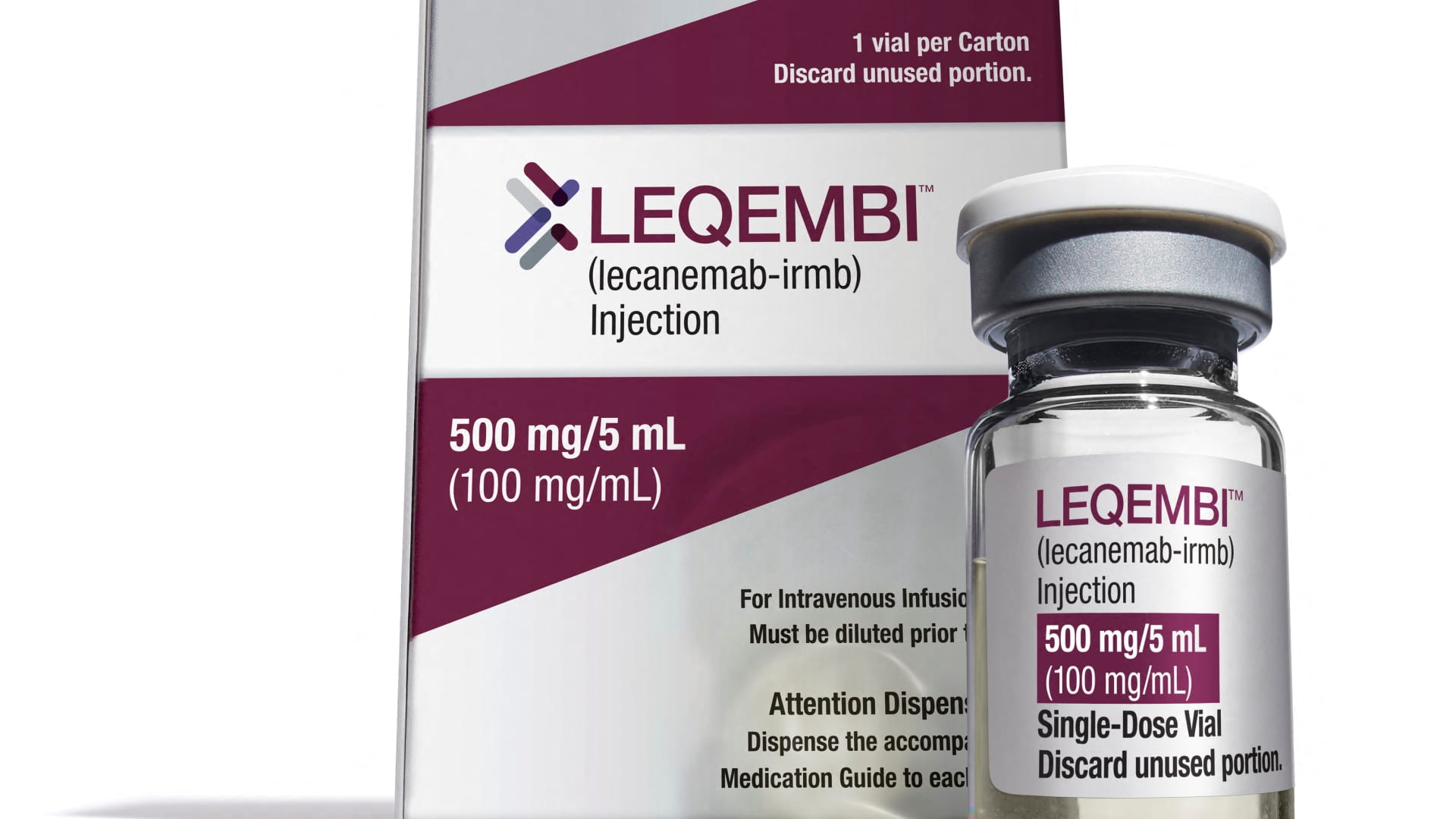
Medicare will not provide broader coverage of the Alzheimer’s drug Leqembi until it receives more evidence that the treatment is reasonable and necessary, according to the federal agency that runs the program for seniors.
The Centers for Medicare and Medicaid Services rejected a request from the Alzheimer’s Association for unrestricted coverage of antibody treatments approved by the Food and Drug Administration that target brain plaque associated with the devastating disease.
“After careful review of the request and supporting documentation, we are making this decision because, as of the date of this letter, there is not yet evidence meeting the criteria for reconsideration,” CMS said in a statement on Wednesday.
The FDA cleared Leqembi on an expedited basis in January after clinical trial results showed that the treatment slowed cognitive decline by 27% in patients with early Alzheimer’s disease. The drug also carries risks of brain swelling and bleeding.
Leqembi was developed by the Japanese pharmaceutical company Eisai and its partner Biogen. When drugs like Leqembi are approved on expedited basis, Medicare will only cover them for patients who are participating in clinical trials.
“As defined in statute, to provide coverage nationally, CMS is required to examine whether a medication is reasonable and necessary,” the agency said in its statement. “This standard differs from the criteria used by the FDA to assess whether medications are safe and effective.”
Eisai, which completed its phase three trial, has priced Leqembi at $26,500 per year. Due to the drug’s high price and Medicare’s coverage restrictions, seniors are unable to access the treatment.
The Alzheimer’s Association, in a statement Wednesday, said it was “appalled” by CMS’ decision.
“CMS’ role is to provide health care coverage. Their role is not to stand between a patient and a doctor when deciding what FDA-approved treatments are appropriate. Their role is not to single out people living with Alzheimer’s and decide that their lives, their independence and their memories are not necessary,” said the association’s president Joanne Pike.
The letter the Alzheimer’s Association sent to CMS in December calling for unrestricted coverage was signed by more than 200 researchers and experts. The American Academy of Neurology has also told CMS that its experts reviewed Eisai’s clinical trial and concluded that the study was well designed and Leqembi provides a clinical benefit.
The Alzheimer’s Association estimates that 2,000 people ages 65 and older progress from mild dementia to a more advanced stage of the disease per day, which would make them ineligible for Leqembi.
CMS said it would provide broader coverage of Leqembi on the same day should the FDA fully approve the treatment. Eisai U.S. CEO Ivan Cheung told CNBC last week that the company expects to receive full FDA approval this summer.
But even with full approval, Medicare’s policy is to cover Alzheimer’s treatments for patients who agree to participate in research studies that collect real-world data. While coverage would be broader, such studies need to be set up and health-care providers have to agree to participate. This would likely still limit the number of people who can access the drug.
But Cheung told CNBC that Medicare could agree to even broader coverage, possibly with no restrictions, if CMS determines that there’s a high level of evidence supporting the treatment.
“With a high level of evidence … the restrictions should be very limited, or maybe even no restrictions and that is Eisai’s position,” Cheung said. “We believe Medicare beneficiaries should have unimpeded access, broad and simple access to Leqembi because the data fulfill those criteria.”
Members of Congress, including 20 senators and more than 70 House members, have called on CMS to change its policy and offer broader coverage of Alzheimer’s antibody treatments. People living in rural and underserved communities face a disadvantage because the institutions that host clinical trials are usually in bigger cities.
“Patients, families, and caregivers living in rural and underserved areas should have the same opportunity for access to treatment,” the House lawmakers told Health and Human Services Secretary Xavier Becerra and CMS Administrator Chiquita Brooks-LaSure. “It is an enormous physical and financial burden for Medicare beneficiaries to spend countless hours traveling to limited research institutions that host the trials.”
Medicare adopted the coverage restrictions after controversy over the Alzheimer’s antibody treatment Aduhelm, which was also developed by Eisai and Biogen. The FDA approved that treatment over the objections of its independent advisors, who said the data did not demonstrate a benefit for patients. Three advisors resigned over the FDA decision, and a congressional investigation found irregularities in the approval process.
Join CNBC’s Healthy Returns on March 29th, where we’ll convene a virtual gathering of CEOs, scientists, investors and innovators in the health care space to reflect on the progress made today to reinvent the future of medicine. Plus, we’ll have an exclusive rundown of the best investment opportunities in biopharma, health-tech and managed care. Learn more and register today:







